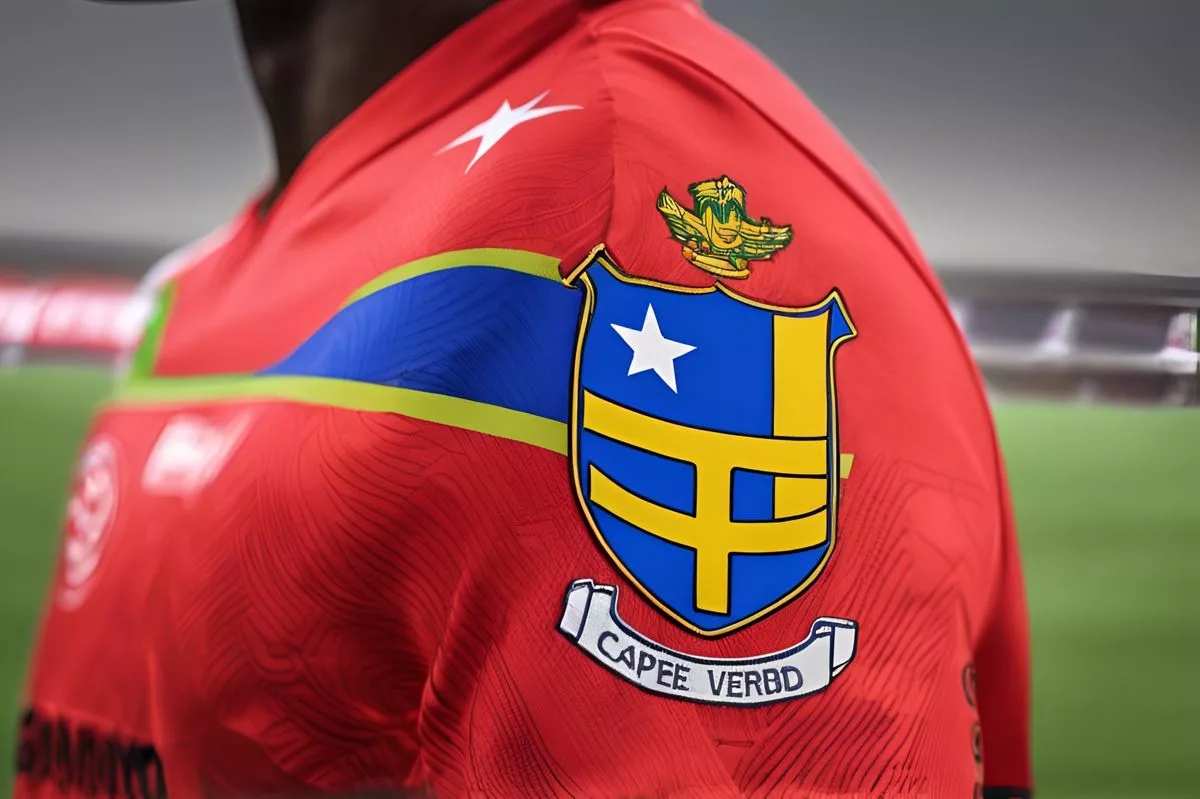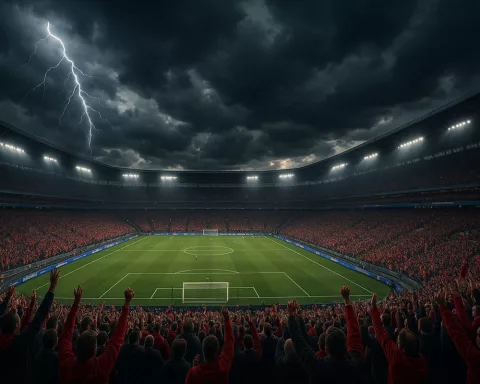Cape Verde’s coach, Pedro ‘Bubista’ Brito, draws inspiration from Nelson Mandela’s philosophy of justice and equality as his team, the Blue Sharks, prepares for a crucial Africa Cup of Nations quarterfinal match against South Africa. Despite injury issues, Bubista aims to surpass their previous record of reaching the quarterfinals and strive for the semi-finals, embodying Mandela’s values of equality, resilience, and unity. The match is anticipated to be a captivating display of fierce competition, with both teams aiming for victory.
Bubista’s Inspiration and Team’s Ambitions
Cape Verde’s coach, Pedro ‘Bubista’ Brito, draws motivation from the iconic figure of Nelson Mandela and his philosophy of justice and equality. Bubista’s team, known as the Blue Sharks, is bracing for their pivotal Africa Cup of Nations (Afcon) quarterfinal match against South Africa. Despite injury issues, Bubista aims to outdo their past record of reaching the quarterfinals and aim for the semi-finals, embodying Mandela’s values of equality, resilience, and unity.
The international football arena is a landscape of high stakes, where inspiration often springs from unexpected sources. Among them is Pedro ‘Bubista’ Brito, the coach of Cape Verde who draws motivation from an iconic figure, Nelson Mandela. The South African leader’s enduring spirit has propelled the aspirations of Cape Verde’s team as they brace for their pivotal Africa Cup of Nations (Afcon) quarterfinal match against Bafana Bafana of South Africa. This captivating match is scheduled at the Charles Konan Banny de Yamoussoukro Stadium in Ivory Coast, an appropriate venue for the anticipated fierce competition.
South Africa has cleared the path to the quarterfinals with a solid 2-0 victory against Morocco. This winning match witnessed extraordinary performances from Evidence Makgopa and Teboho Mokoena, who each found the net in the second half, resulting in the exit of the Atlas Lions. Conversely, Cape Verde bagged a narrow victory over Mauritania with Captain Ryan Mendes’ last-minute goal marking the difference.
Bubista’s Inspiration and Team’s Ambitions
In this setting of extreme rivalry, Bubista has chosen to draw motivation from an extraordinary figure. Nelson Mandela, affectionately called Madiba, was not simply South Africa’s first black president. He was a beacon of hope and liberation, freeing the nation from the suffocating apartheid regime. His philosophy of justice and equality has deeply affected Bubista, who quoted Mandela’s principles to inspire his team, known symbolically as the Blue Sharks.
Bubista’s respect for Mandela’s principles was clear in his conversation with Jornal Opais, a Cape Verdean newspaper. He expressed his excitement about the opportunity to play against the team from South Africa, the homeland of Mandela. Bubista emphasized that playing against South Africa, a nation molded by Mandela’s ideals, would be a privilege. He also shared his ambitions for his team in the Afcon tournament: to outdo their past record of reaching the quarterfinals and aim for the semi-finals.
Challenges on the Road to Glory
However, the path to success is fraught with obstacles, and Cape Verde is currently dealing with injury issues. Some of their key players, including goalkeeper Marcio da Rosa, defender Steven Moreira, and Captain Ryan Mendes, are battling various injuries. Their participation in the upcoming match against Bafana Bafana is uncertain, casting a cloud of suspense over the team’s chances.
As the Blue Sharks prepare for their quarterfinal match, they represent not just their national pride but also embody the spirit of a global icon. Regardless of the match’s outcome, their participation in the tournament goes beyond the confines of the football field, reflecting Mandela’s values of equality, resilience, and unity. As Bubista has stated, “We will traverse this path with responsibility; a spirit of unity and patriotism.” This spirit imbues the Afcon quarterfinals, attesting to the lasting influence of extraordinary leaders and the unbeatable spirit of sport.
1. Who is Pedro ‘Bubista’ Brito and what is his motivation for coaching Cape Verde’s team?
Pedro ‘Bubista’ Brito is the coach of Cape Verde’s national football team, the Blue Sharks. He draws motivation from Nelson Mandela’s philosophy of justice and equality.
2. What is Cape Verde’s past record in the Africa Cup of Nations (Afcon) and what are their ambitions for the tournament this year?
Cape Verde’s past record in the Afcon is reaching the quarterfinals. Their ambition this year is to surpass that record and aim for the semi-finals, embodying Mandela’s values of equality, resilience, and unity.
3. Who is Cape Verde’s opponent in the Afcon quarterfinals and how did they reach this stage?
Cape Verde’s opponent in the Afcon quarterfinals is South Africa’s national football team, Bafana Bafana. South Africa reached this stage by winning their previous match against Morocco 2-0.
4. What challenges is Cape Verde facing on the road to the Afcon glory and which players are battling injuries?
Cape Verde is currently dealing with injury issues, with key players such as goalkeeper Marcio da Rosa, defender Steven Moreira, and Captain Ryan Mendes battling various injuries. Their participation in the upcoming match against Bafana Bafana is uncertain.
5. What is the significance of Nelson Mandela’s influence on Cape Verde’s team and their participation in the Afcon?
Nelson Mandela’s philosophy of justice and equality has deeply affected Bubista and the Blue Sharks team, inspiring them to embody his values of equality, resilience, and unity. Their participation in the Afcon reflects Mandela’s values, going beyond the confines of the football field.
6. What is the venue for the Afcon quarterfinals and what can be expected from the match between Cape Verde and South Africa?
The Afcon quarterfinals between Cape Verde and South Africa will be held at the Charles Konan Banny de Yamoussoukro Stadium in Ivory Coast. The match is anticipated to be a captivating display of fierce competition, with both teams aiming for victory.












